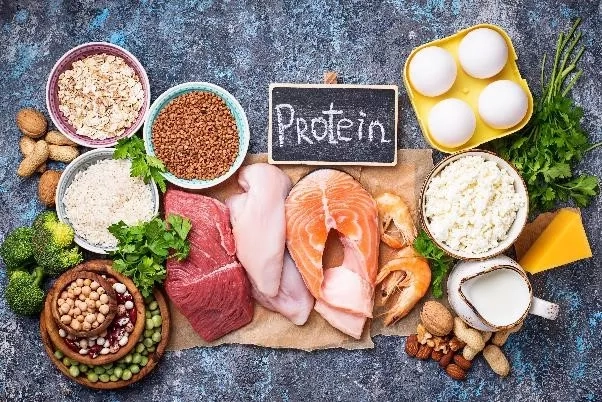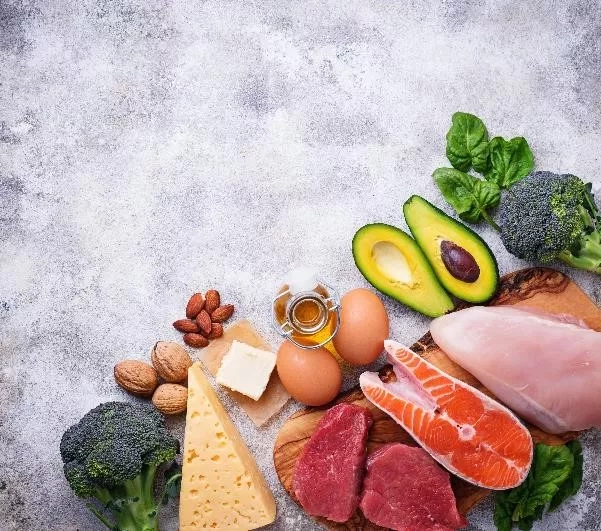Right diet during pregnancy for an intelligent baby
You can be a proud mother to the next Einstein

While a healthy baby is all most parents could ask for, studies in the area of higher intelligence have started to reveal why some babies are so incredibly smart. Have you ever wondered why there are some babies that meet developmental milestones at a very early stage? Here we are referring to babies who start walking at 9 months, draw a smiley face at 9 months, talk in long sentences at 24 months, count past ten at 24 months, etc. No one has ever been able to explain exactly why it is possible for these children to progress through their developmental milestones so much quicker than other children. And while not many are prepared to say it out loud, there are genetic studies emerging that now provide us with a glimpse of what a baby really needs to help him develop the best possible brain that he can. Simply follow these simple nutrition-based food guidelines to ensure the arrival of your bundle of joy as the "next Einstein."
Pop your prenatal vitamins

Taking your vitamins every day will help ensure that you get the balance of nutrients that your baby needs: folic acid and vitamin B12 to make red blood cells, vitamin C to produce collagen, vitamin D for bone building, and zinc for brain development.
Munch on fruits and veggies
Vegetables and fruits contain antioxidants, which are good for your baby. “Antioxidants protect the baby’s brain tissue from damage," says nutritionist Elizabeth Somer, author of Nutrition for a Healthy Pregnancy. Aim for seven servings of fruit and veggies a day. Choose deep-coloured ones for the biggest antioxidant punch: dark leafy greens, strawberries, plums, and tomatoes, for example. Do make sure to wash all fruits and vegetables well, even fruits that have a rind (as cutting them will drag germs through the flesh).
Boost proteins

Your body needs more protein right now to build cells and make hormones for your growing baby. So, increase your protein intake by an extra ten grams a day. Meat, chicken, and eggs are considered the best sources of protein. Boost your protein intake with yogurt, boiled eggs, chicken, and meat curry. Vegetarian moms-to-be can choose from soya beans, kidney beans, and lentils, as well as broccoli, cabbage, and spinach.
Pump up the iron
Your iron intake needs to double during pregnancy since iron helps to deliver life-sustaining oxygen to your baby. The trouble is, many women enter pregnancy already deficient. If your baby is deprived of oxygen in the womb, the risk of poor growth and lower IQ increases. Ask your doctor to test you for an iron deficiency. Then make sure your diet includes iron-rich foods like red meat, chicken, legumes, and fortified breakfast cereal.
Essence of copper
The nutrient copper is one of several very important nutrients for brain development, and studies have shown it to be responsible for the development of the hippocampus and dentate gyrus (the higher learning and higher thinking areas in the brain). A pregnant woman can provide her baby with sufficient amounts of copper simply by paying attention to the various foods she chooses to consume throughout the day. These foods include cashews, avocados, brown rice, eggplant, black beans, spinach, green beans, beets etc.
Choline counts

Researchers from the University of North Carolina fed two groups of pregnant mice different diets during the period when their baby’s memory, the hippocampus, develops. One group’s diet included choline, while the other did not. Examining their brain cells, researchers found the group that did not receive choline had epigenetic changes in the proteins that wrap genes in cells responsible for the creation of new brain cells. The two proteins (G9a and Calb1) that are in charge of making and maturing new neurons in the hippocampus were changed in the group that didn't get choline. Choline is found in meat, nuts, and eggs.
DHA importance
An infant's brain starts development as early as 4 weeks after conception. Therefore, the groundwork can begin even before a woman gets pregnant. That's why it's highly recommended that all women in childbearing years get plenty of omega-3 fatty acids with DHA in their diets. Researchers at the Institute of Brain Chemistry and Human Nutrition in London have revealed that low birth weight babies are born to mothers who are inadequately nourished during pregnancy. These babies have been found to be deficient in DHA. Because brain development disorders can be permanent, a good pregnancy diet must include plenty of omega-3 oils with DHA. This means eating more fatty fish like Atlantic salmon, Pacific cod fish, and tuna and supplementing with high quality, pure fish oil capsules, or both.
Be mindful of mercury
Fish is good for your baby’s brain. However, mercury contamination in some fish may be dangerous for your baby’s nervous system. The US Food and Drug Administration advises pregnant women to avoid shark, tilefish, king mackerel, and swordfish since they contain the highest levels .Some lower mercury options include salmon, catfish, tilapia, and shrimp. And if you want to eat canned fish, choose light tuna, which has less mercury than other types of fish.
Avoid alcohol and smoking

Although foetal alcohol syndrome is associated with heavy alcohol abuse during pregnancy, even moderate amounts of beer, wine, or liquor can harm a baby’s brain. Light to moderate drinking can lead to problems with learning, attention, recall, and social skills down the road. And smoking – active and passive – can retard the growth of your baby’s brain, so stay away from it.
Recent Blog Posts
- 01 Aug 2025
- 02 Jun 2025
- 28 Mar 2025
- 10 Nov 2023
- 19 Oct 2022
